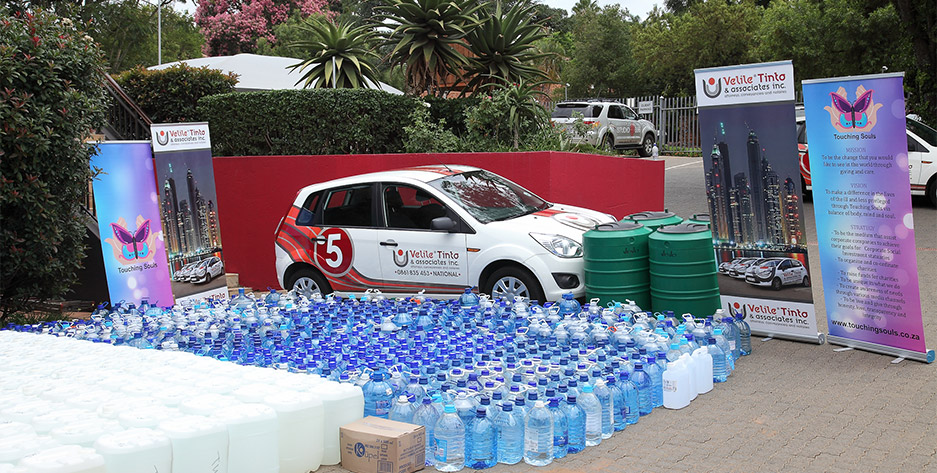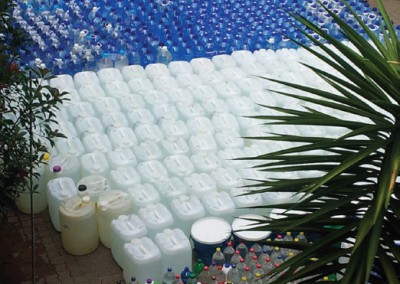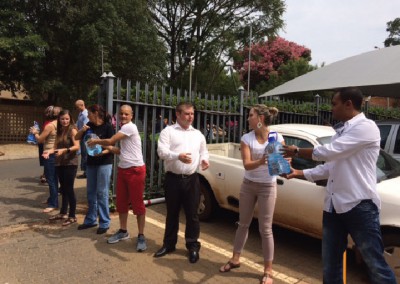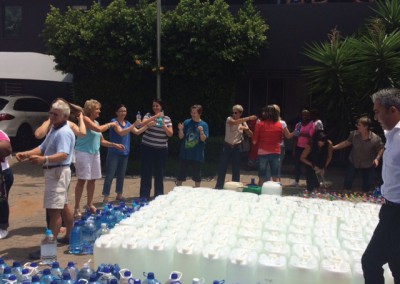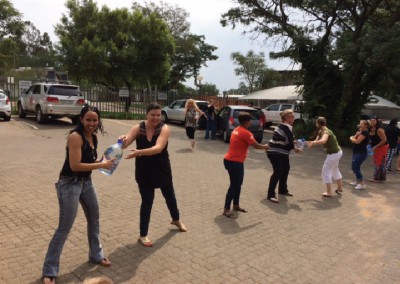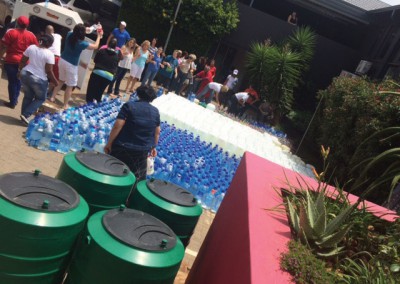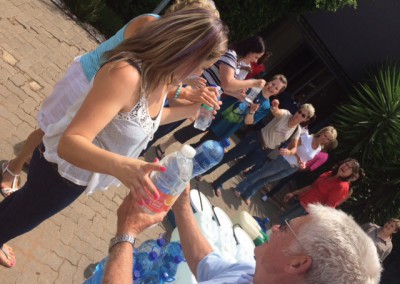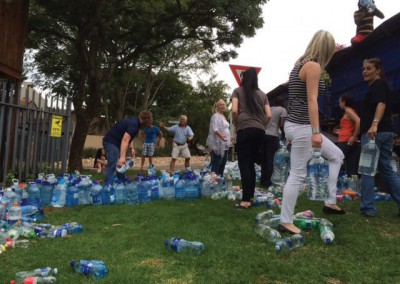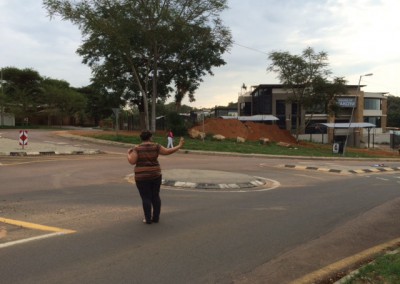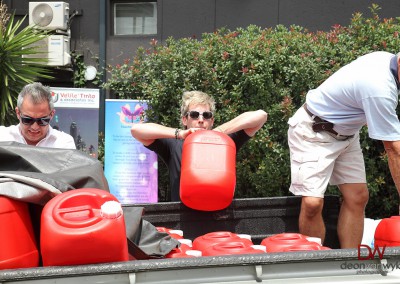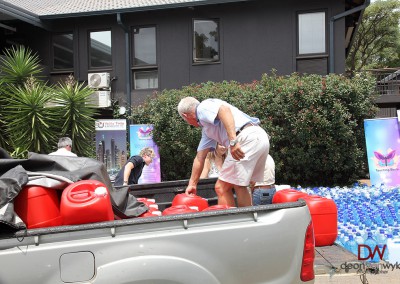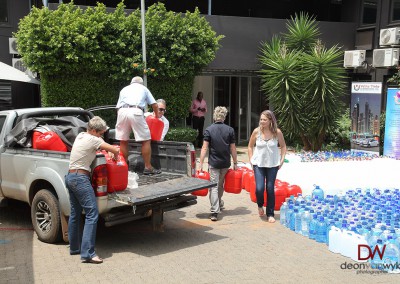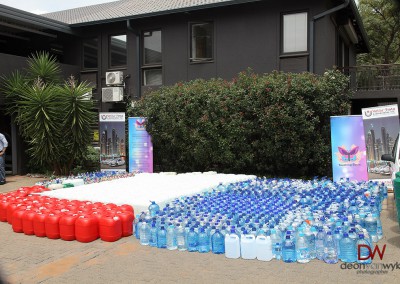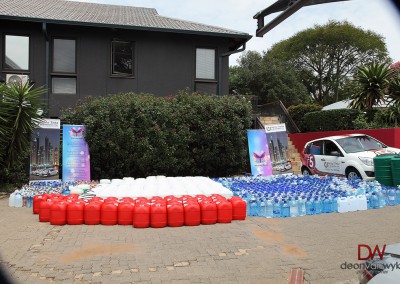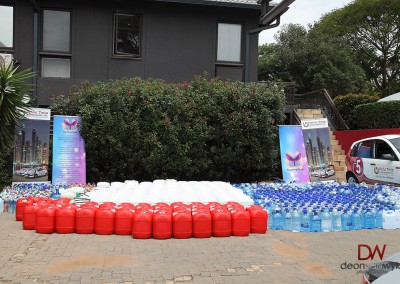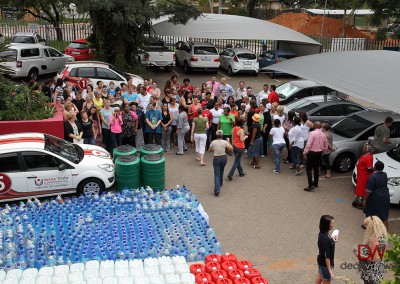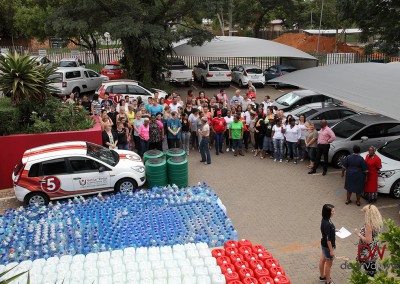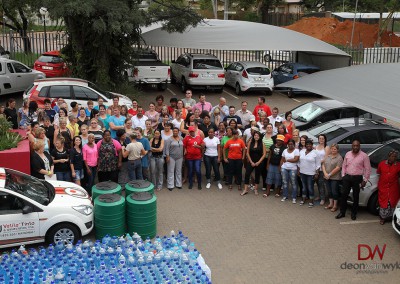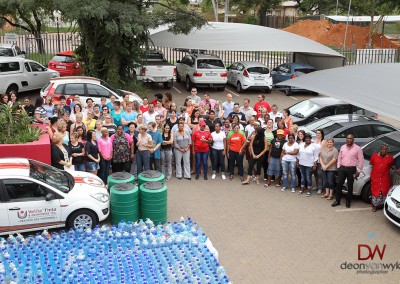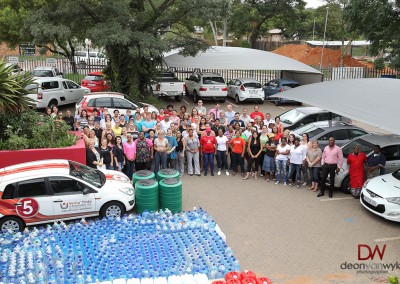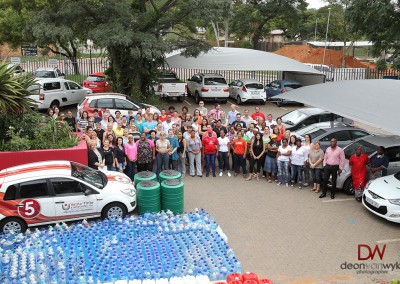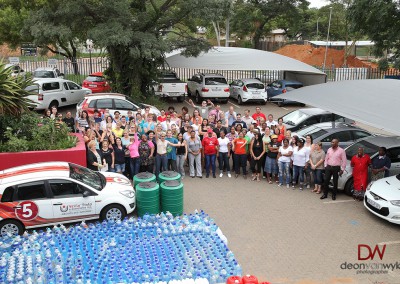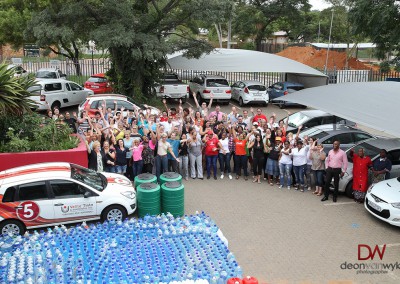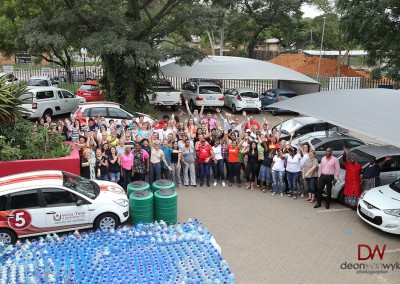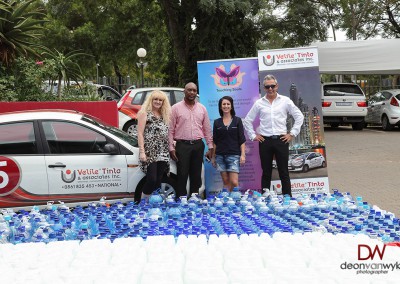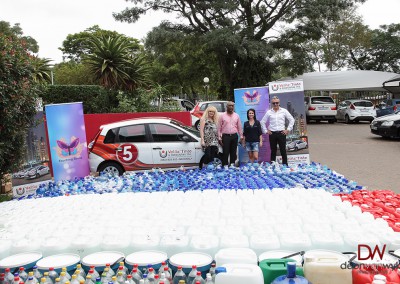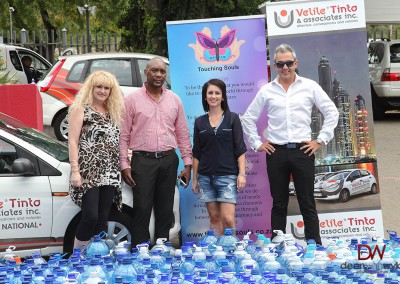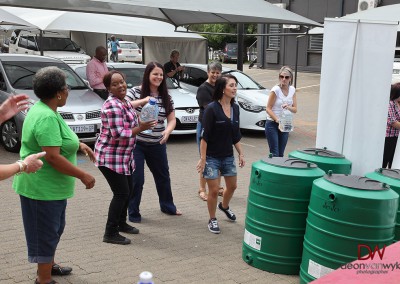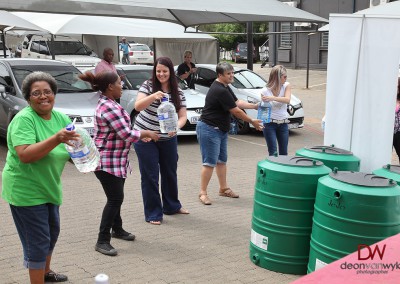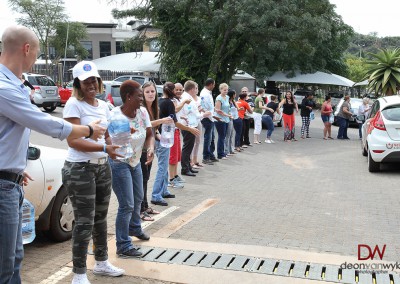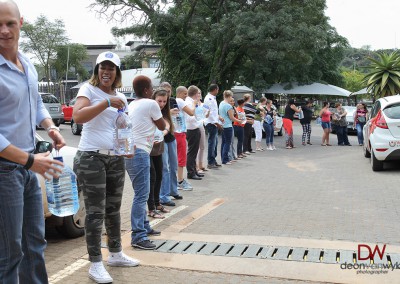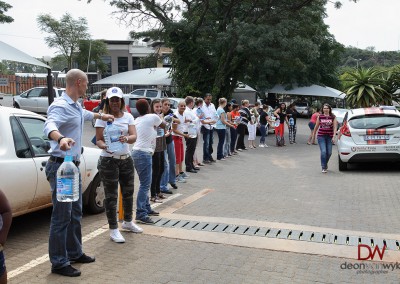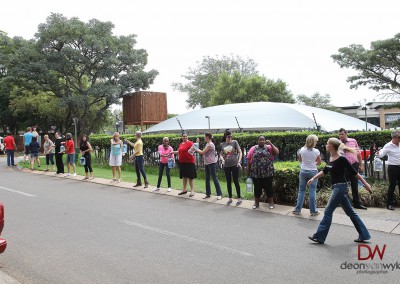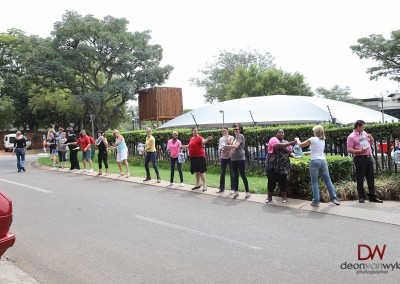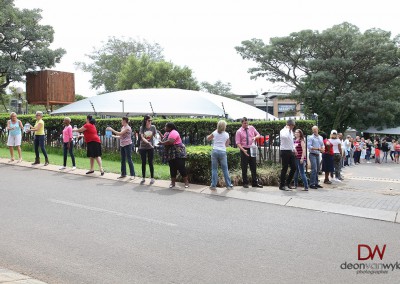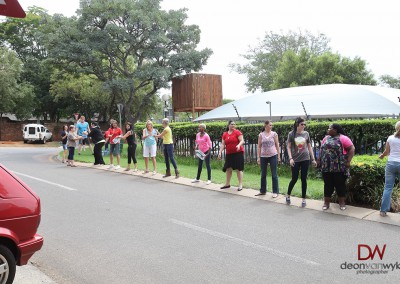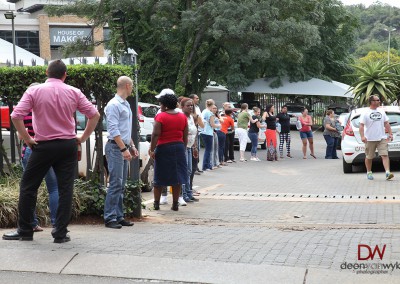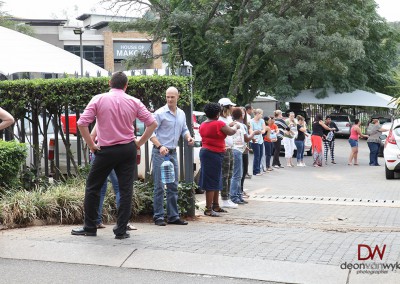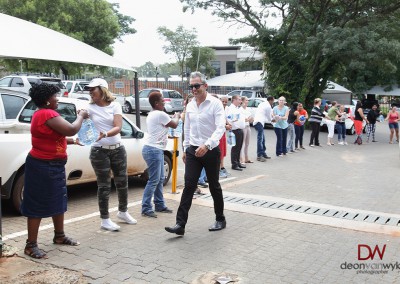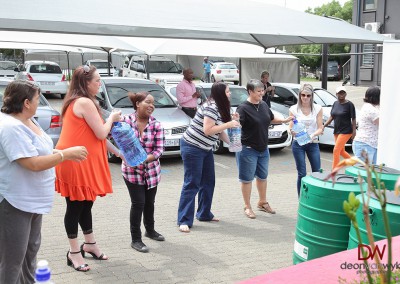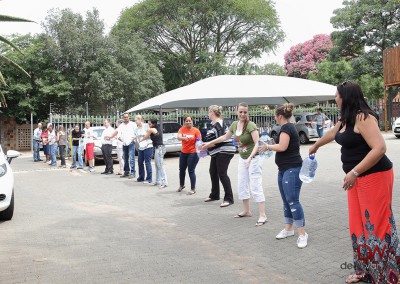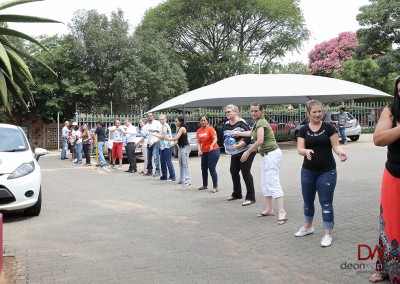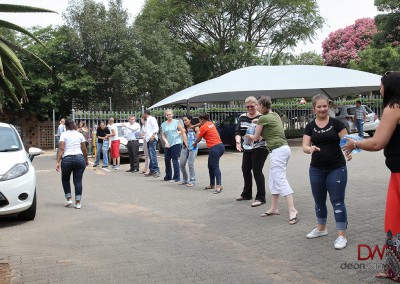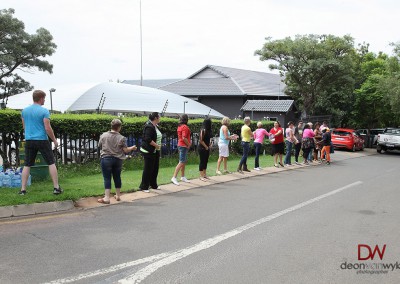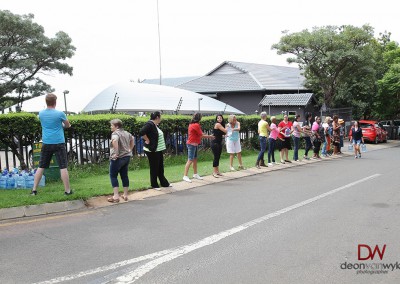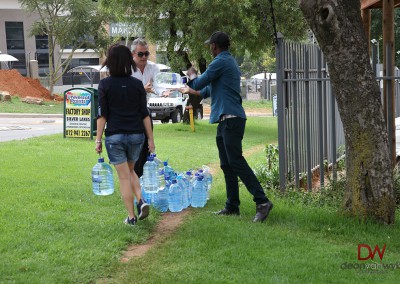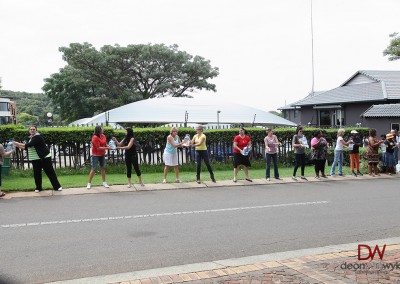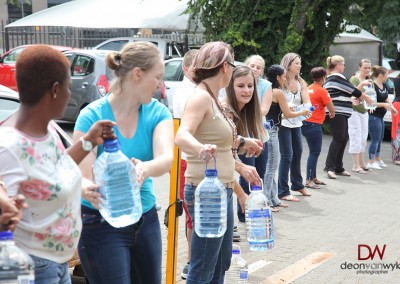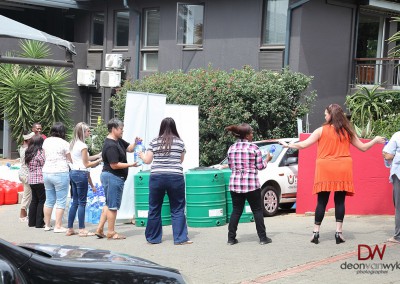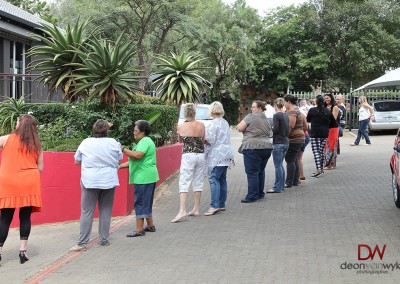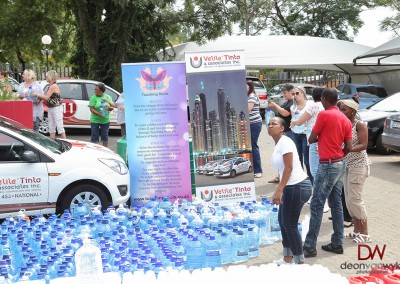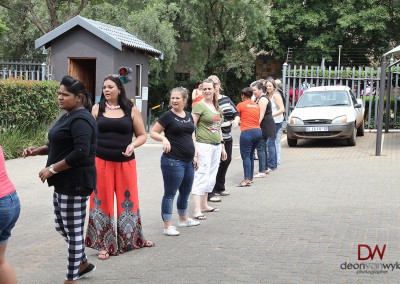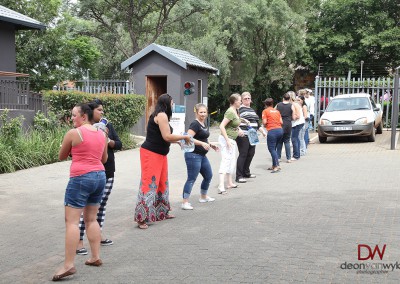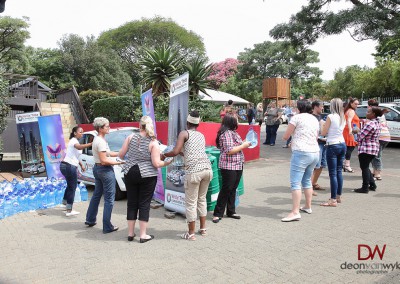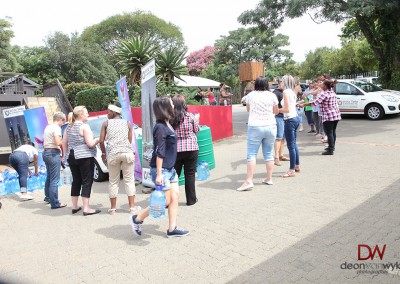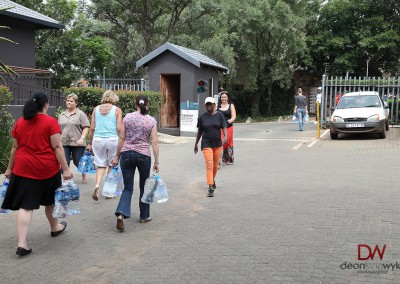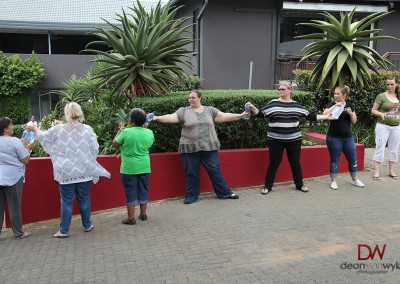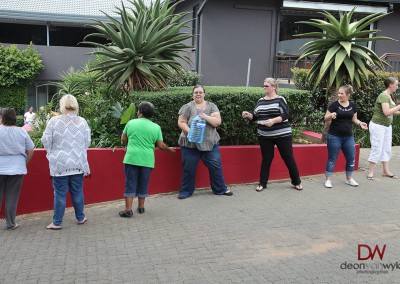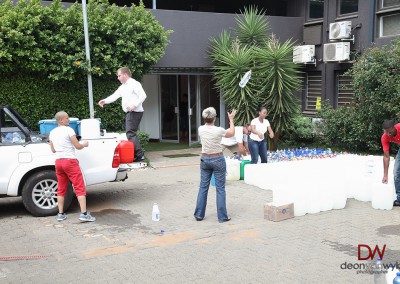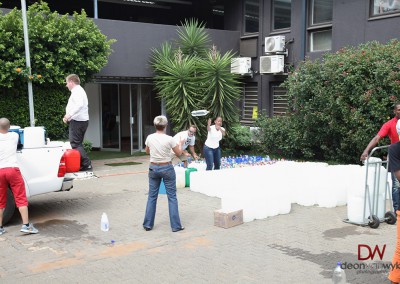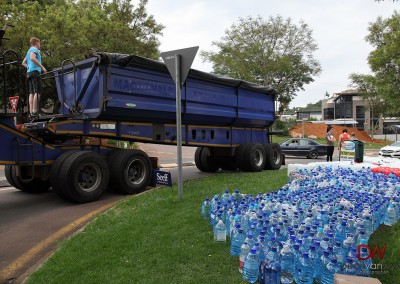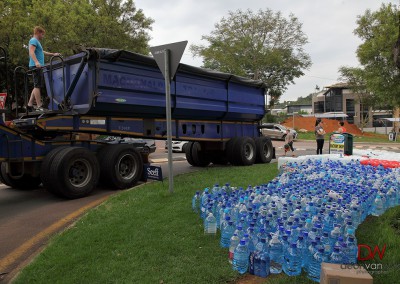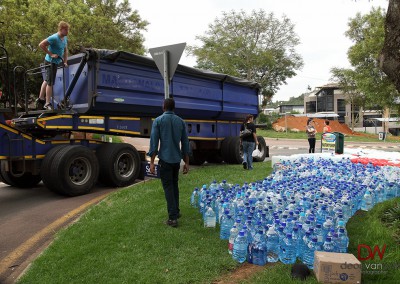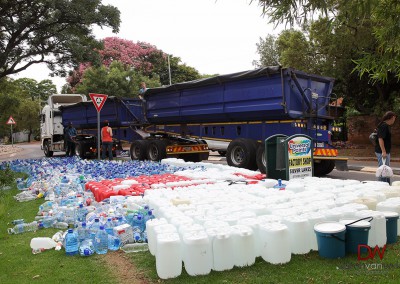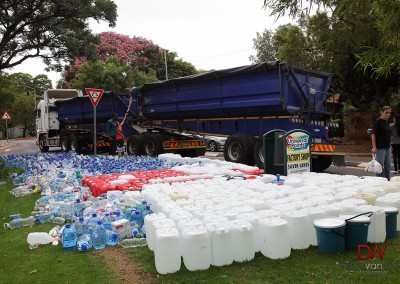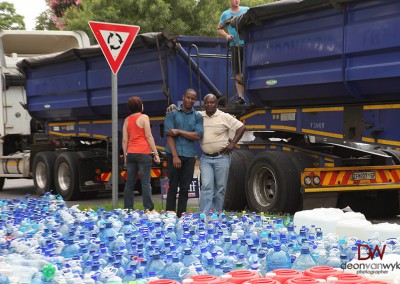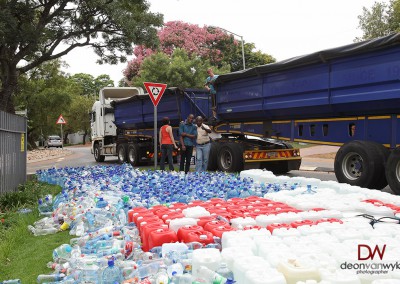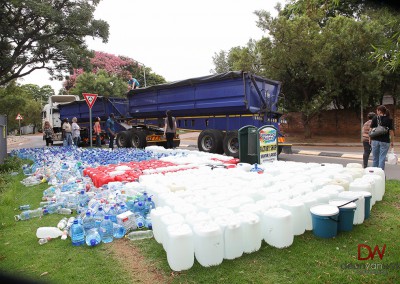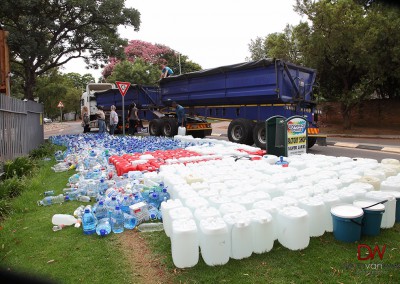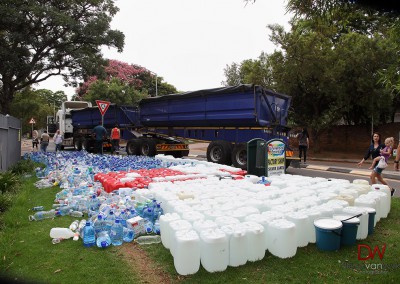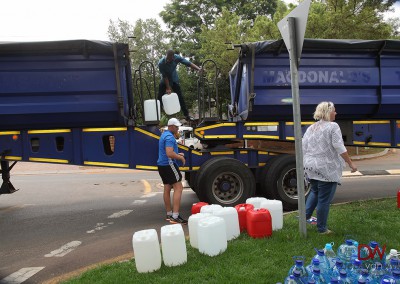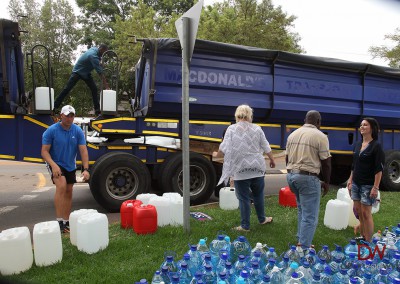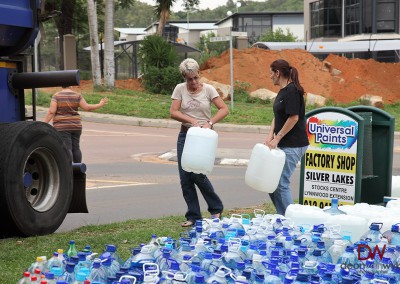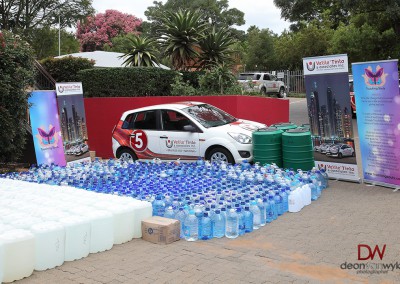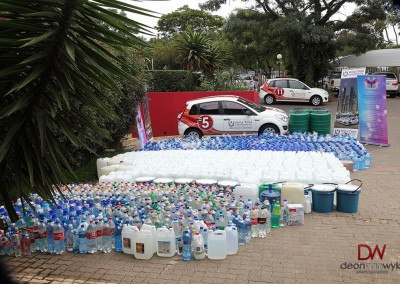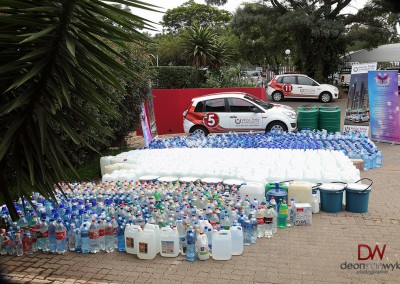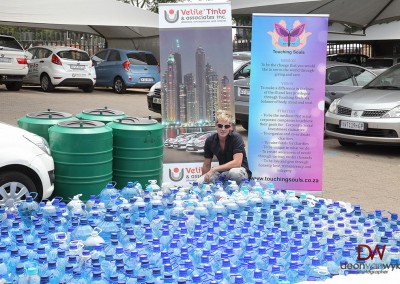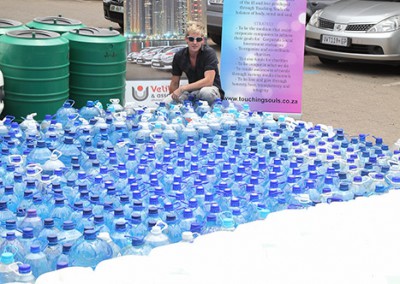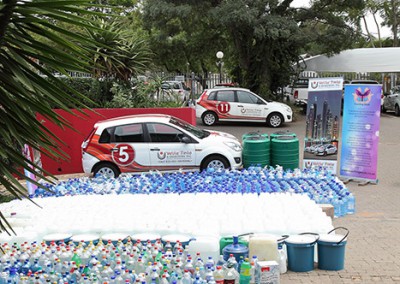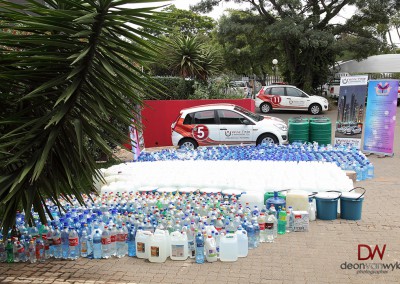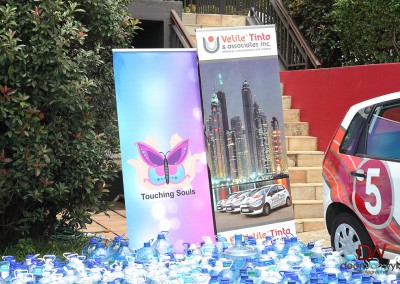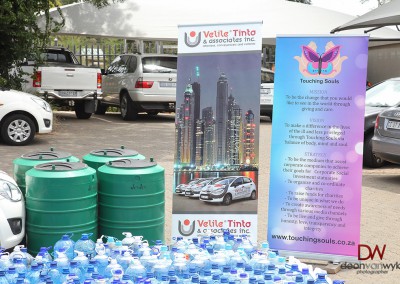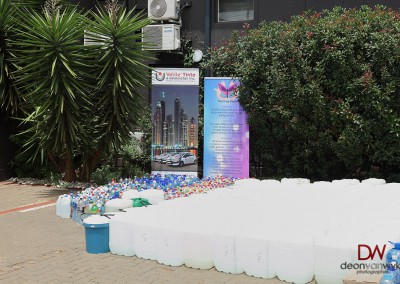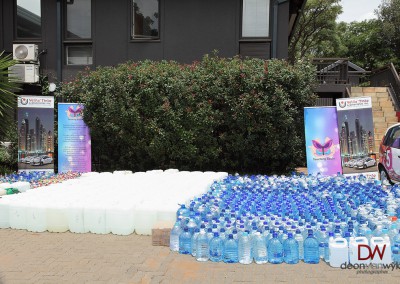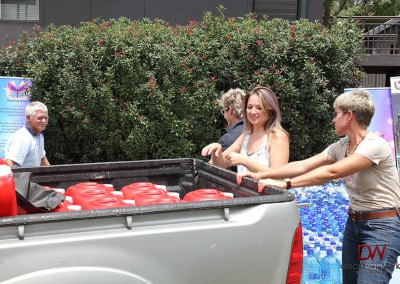Velile Tinto & Associates initiates the donation of 4000 liters of water in aid of draught stricken communities in South Africa.
On 21 January, Velile Tinto from Velile Tinto & Associates contacted Karen Schwendtke, the Director of Touching Souls, with the initiative to participate in the SA Crisis Support project which is taking place all over SA. This project relies on water donations from the public, where after it is delivered to a drop-off point, collected by SA Crisis Support and distributed to areas where it is most needed.
Velile Tinto & Associates, Touching Souls and Gerhard Potgieter, a local veterinarian, and their teams respectively, all came together in an effort to donate as much water as possible. Many liters of water was gather from and delivered to the Velile Tinto offices and a truck was arranged to deliver the water to a drop-off point in Bloemfontein. Velile Tinto & Associates employees worked late into Friday afternoon to load the water onto the truck and they are proud to announce that 4000 liters of water was collected.
“We are truly thankful that we came together as one team and that we were able to make such a large contribution. Even though the need is in SA is great, we are proud to know that we assisted even if it is in some small way. Our gratitude also goes out to Deon from Deon van Wyk photography who took the time to attend this wonderful project” Velile Tinto said.
Velile Tinto & Associates has issued a public challenge to all law firms to partake in this project and to beat the 4000 liters collected.
UNDERSTANDING THE DROUGHT
Droughts aside, South Africa is normally a dry country. At 464mm, our average yearly rainfall is about half the global average of 860mm. And, unlike in other parts of the world, our cities were built around mining, not water. Because of this, says CEO of the Water Research Commission, Dhesigen Naidoo, “We generally have fairly good adaptation measures for dry spells. But what we are currently experiencing is not just a dry spell. To varying degrees this country, is experiencing a full-scale drought.” To make things a little worse, the drought is taking place within a prolonged dry spell coinciding with El Niño, meaning that really good rains (a so-called “wet season”) might be five to seven years away. Climate-forecasting models predict that rainfall is going to become increasingly variable. So, we’re not just out to survive one drought, we’re out to adjust to a dryer future. First, though, we need short-term measures to relieve the water system pressure. The biggest of these is the socalled ‘War on Leaks’. Seven billion rand is lost a year through leaking pipes and taps, and together with a collapsing infrastructure, we are heading for serious problems, Minister of Water Affairs, Nomvula Mokonyane, said on Sunday, referring to South Africa’s 37% non-billed water. Non-revenue water – the difference between the volume of water put into a water distribution system and the volume that is billed to customers – has three components. In addition to leaks, it comprises commercial loss (metering inaccuracies and water theft), and unbilled authorised consumption (free water given to certain groups). Water lost to leakages make up 25% of total water consumption and 68% of nonrevenue water (NRW). For comparison’s sake, the World Bank estimates that NRW averages between 40 and 50% in developing countries. Still, Naidoo argues, “That’s 7.2 billion lost in the system that could fund a whole range of measures to get us to a better place.” And 9.3% of water lost through leakages, is still water that we can’t afford to lose. Minister Mokonyane said that R350-million would be allocated to drought related projects, and that a countrywide project would be launched to train 1500 youngsters to repair taps and pipes in their communities. As well as infrastructure upgrading, rainwater harvesting and water desalination plants are already being commissioned. Of course, we like the sound of the War on Leaks, because leakages are not our fault, and they can be fixed without our having to change our own consumption. However, individual water use, is another important saving measure, both in the short and long term. Although it makes up a comparatively small part of the country’s water use (see chart below), household water is clean and drinkable, and thus more valuable than the water used for agricultural irrigation. Saving water starts in the home, and if we each do our part, the future looks more promising.
WHAT YOU CAN DO TO SAVE WATER
Leave lawn clippings on the grass to keep it cool and lock in moisture Invest in rainwater harvesting measures One drip per second adds to 19 litres per day. Fix those leaks! Change your shower time from 10 minutes to 5 minutes, and save 6000 litres per month Match the water level to the laundry size in your washing machine Fill the basins to wash dishes and do not let the water run Send a pic of you, your department or your family saving water to melissa@tintolaw.co.za
NEW EMPLOYEES
We boast two new employees this month, Daniel Legodi and Wesley van Zyl. We welcome them to our team and wish them many years of success and joy with us. We also welcome back Marilyn Dorlly and Yolandi Jacobs from maternity leave.

Daniel Legodi
Security Officer
Interesting Facts:
His name is pronounced “Daan-ee-il’ as in the Afrikaans bible character. Daniel enrolled for LLB Law at the University after matric, and he was accepted. Unfortunately he could not enroll at that time and he strives to complete his studies in the near future.

Wesley van Zyl
Filing Clerk
Interesting Facts:
Wesley is an electronic genious. He can install various systems such as CCTV cameras and DSTV decoders

